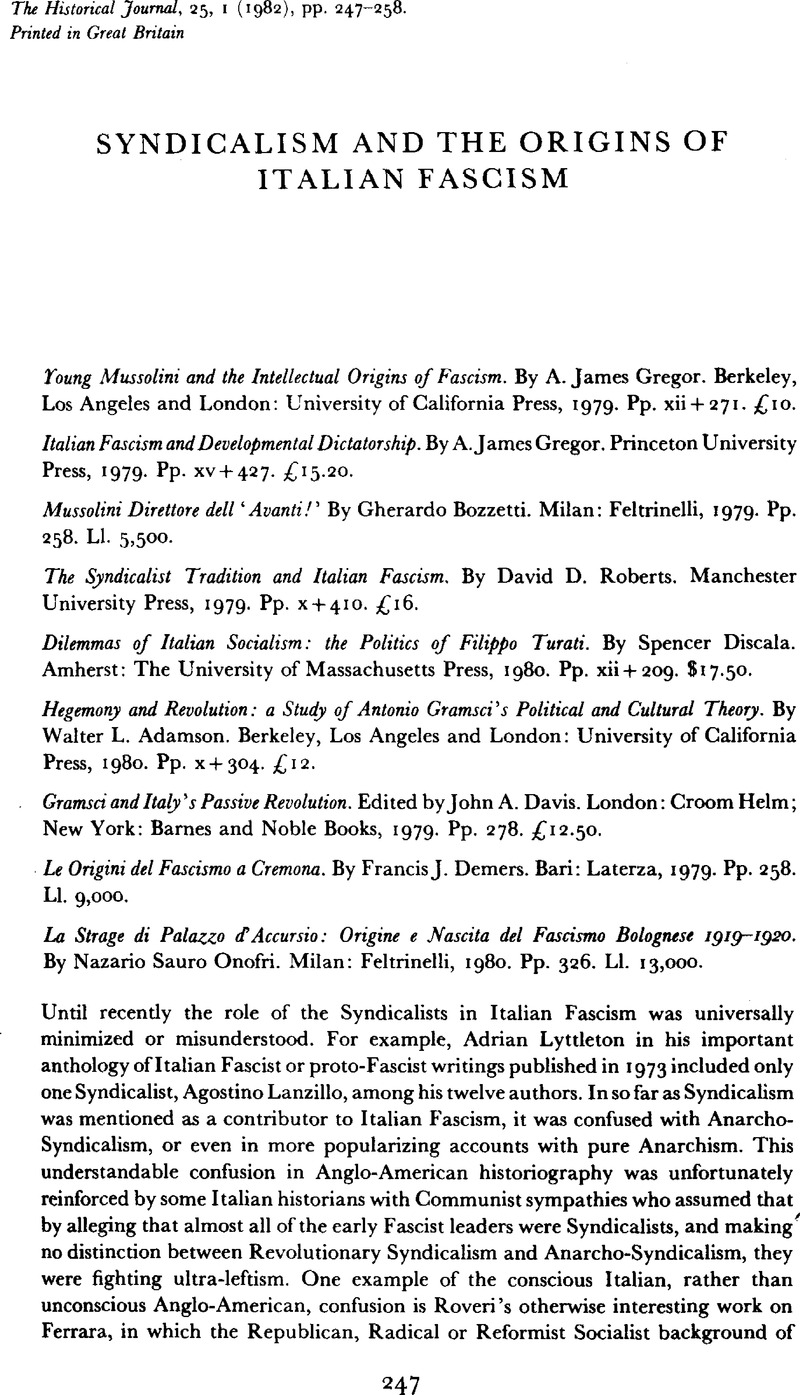No CrossRef data available.
Article contents
Syndicalism and the Origins of Italian Fascism
Published online by Cambridge University Press: 11 February 2009
Abstract

- Type
- Review Articles
- Information
- Copyright
- Copyright © Cambridge University Press 1982
References
1 ‘Mussolini and the legacy of revolutionary Socialism’, Journal of Contemporary History, ii (1976), 239–68.Google Scholar
2 ‘Revolution? Counter-revolution? What revolution?’, pp. 488–531 of 1979 London edition.
3 Christopher, Seton-Watson, Italy from Liberalism to Fascism 1870–1925 (London, 1967), p. 424.Google Scholar
4 Alastair, Davidson, Antonio Gramsci: towards an intellectual biography (London and New Jersey, 1977)Google Scholar, Martin, Clark, Antonio Gramsci and the revolution that failed (New Haven and London, 1977)Google Scholar; Cammett, John M., Antonio Gramsci and the origins of Italian Communism (Stanford, 1967)Google Scholar; Gwyn, Williams, Proletarian order: Antonio Gramsci, factory councils and the origins of Communism in Italy 1911–1921 (London, 1975)Google Scholar; Giuseppe, Fiori, Antonio Gramsci: life of a revolutionary (London, 1970).Google Scholar
5 Carl, Boggs, Gramsci’s Marxism (London, 1976).Google Scholar
6 James, Joll, Gramsci, (Glasgow, 1977).Google Scholar
7 ‘The Italian Communists originally took the name PC d ‘ l to indicate they were merely! the Italian section of the Third International. When Gramsci supplanted Bordiga and a new emphasis was placed on the ‘national-popular’, they adopted the more familiar PCI label instead.
8 Paolo, Spriano, Gramsci: the prison years (London, 1979).Google Scholar
9 Simona, Colarizi, Dopoguerra e Fascimo in Puglia 1919–1926 (Bari, 1971)Google Scholar; Rolando, Cavandoli, Le Origini del Fascimo a Reggio Emilia 1919–1923 (Rome, 1972).Google Scholar
10 La Grande Guerra nella Citta Rossa (Milan, 1966)Google Scholar and I Socialisti Bolognesi lulla Resistenza (Bologna, 1965).Google Scholar


